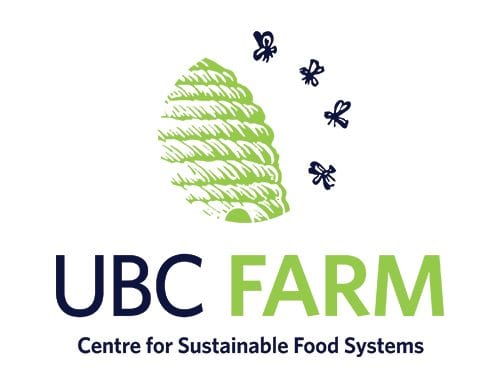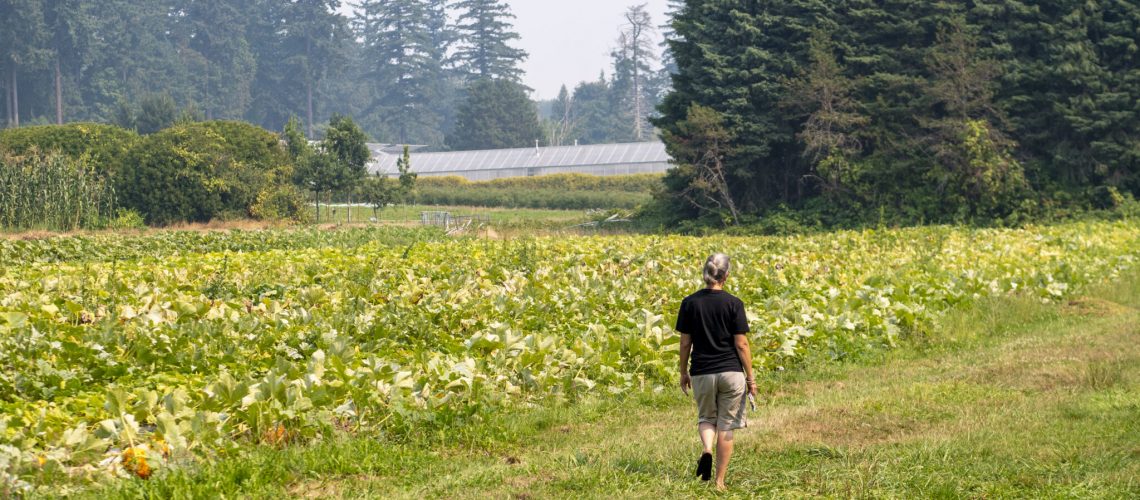OpenTEAM sees agriculture as a public science. By creating a pre-competitive space where we can more rapidly and easily pool knowledge, resources and capabilities, we can develop a shared understanding of food systems, agroecosystems, climate science, and relationships between soil health and human health in order to collectively solve the systemic challenges of climate change and farmer resiliency.
OpenTEAM’s goals are not simply to create better research and decision tools, but to demonstrate a collaborative approach to data portability & soil health research that will catalyze transformation in agriculture and global systems science. By making research findings as public as possible, we can support collaborative and peer-to-peer learning.
“It is hard for advancements to happen in silos. By making research public, people can work off of it and collaborate together through shared research,” says Ollie Summers, who worked as the Data Manager at UBC Farm earlier this year.

The UBC Farm is the Center for Sustainable Food Systems’ (CSFS) main research, teaching and learning space at the University of British Columbia in Vancouver. Researchers apply to CSFS every year, providing information on how much land they need to carry out their research, the support they need from farmers, what they are planning to grow, etc… The Field Manager then sees if the researchers’ needs align with that of the “commercial” side of the farm, as the food production then funds other aspects of the Center and the farm.
UBC Farm is working to safely share data researchers collect to not only make processes easier when sharing research through journals, but to make their research more transparent. Through shared research, other researchers and citizen scientists can more easily check that work and the validity of it, thus improving the quality of research that goes out.
“Human improvement is always based on sharing knowledge,” says Summers. In addition to working on making research data more public, Summers along with others at UBC Farm are working to make data collected on the farm more understandable by taking it in its raw form and making it more visually appealing.
Through LiteFarm, a farm management tool, UBC Farm is looking to improve their research data collection methods and analysis processes while supporting others globally who are either current or aspiring sustainable farmers.
“We feel a drive and necessity to be a farm that is focusing on research and development because we have the capacity and want the world to shift in a way that is positive for farmers and for the environment by being as involved and collaborative as possible,” says Summers.
Co-designed by farmers, researchers, designers, software professionals, donors, open-source enthusiasts and others, LiteFarm is a free and open source farm management tool with over 1600 users from around the world. The application emphasizes ease, creating a non-intimidating tool which is accessible and portable for farmers.
“We are using this tool to pull research data from farmers. In its creation, we have switched this paradigm where it is made for farmers rather than researchers, making it easier for producers to input their farm management data while still supporting researchers in their larger data needs,” says Kevin Cussen, Product Lead for LiteFarm at UBC.

To maintain accessibility, LiteFarm underscores the importance of its open-source development. The users they are trying to reach, particularly from marginalized communities, are often unable to pay for software. Thus, making their application open source, open access, and free to use remains important to the development of LiteFarm.
“95% of the internet is built on open source structure, it accelerates innovation,” says Cussen.
At the end of last year, LiteFarm shared a major update to their tool, developing increased breadth and depth of their crops module, introducing crop management plans, creating a new task feature, and allowing farmers to upload certain documents to the application. The app is now being used by over 1,500 farmers in more than 75 countries. As a part of this update, they refreshed the litefarm.org website to share some of the success stories of their users. They are also actively adding video training guides in English, Spanish, and Portuguese on getting started with the app.
Additionally, the app now has the ability to capture all the inputs and outputs necessary to certify a farm’s crops as organic. Although this capability is currently available in British Columbia and some parts of South America, users seeking certifications outside those areas are able to generate a generic version of the same information to assist in their own certification requirements. As for the future of LiteFarm’s continued development, it looks towards integrating livestock and livestock management into its application.
By being a part of the OpenTEAM community, UBC Farm and LiteFarm see opportunities to collaborate with others in the community and integrate with other tools.
“Supporting open source software and the idea of a consortium of tools that work together is an admirable goal. We are very excited about OpenTEAM and are looking out for opportunities to collaborate that helps with our user base and helps with others’ user bases,” says Cussen.
Through UBC Farm’s and LiteFarm’s workstreams and those of OpenTEAM, project collaborators and tool developers are able to connect with farmers and understand what is useful for them, ensuring human-centered design processes that provide tools with both high utility and ease of use for farmers of all farm sizes, regions, and production systems.



No comment yet, add your voice below!